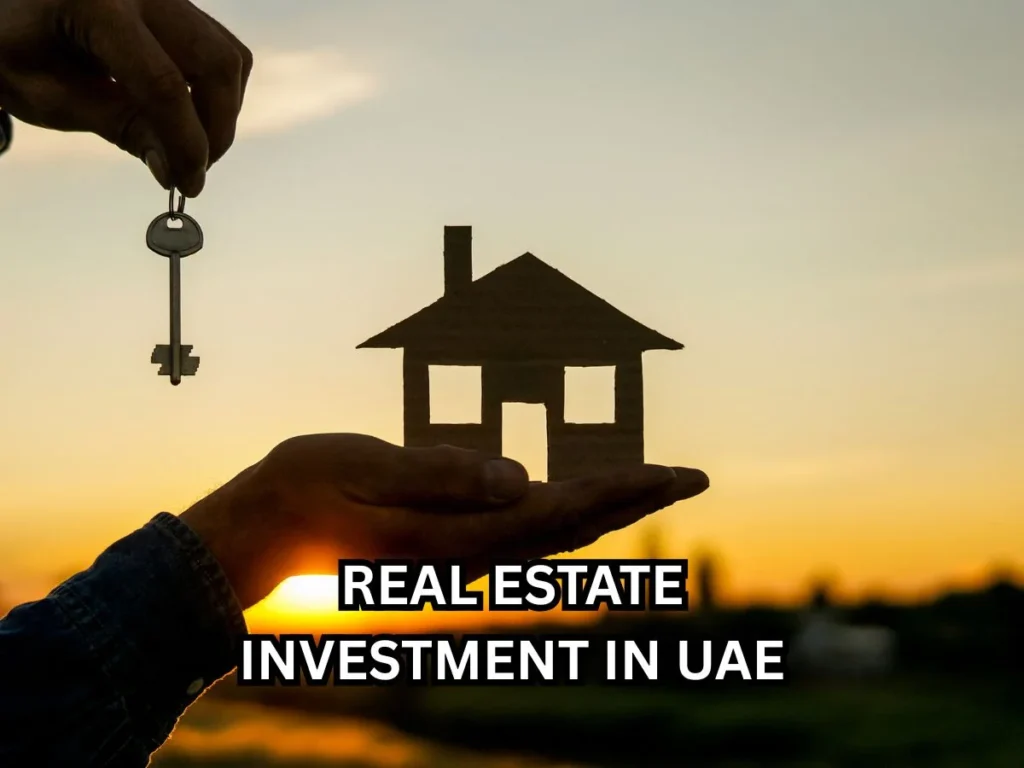Introduction
Have you ever dreamed of owning property in a place where luxury, business, and opportunity come together? Real estate investment in UAE is not just for the wealthy. It has become an achievable goal for everyday investors who want growth, safety, and a touch of prestige. The UAE, known for its iconic buildings, tax-free benefits, and modern lifestyle, is now a global hub for real estate dreams. Whether you’re planning for your future or want passive income, this topic is worth exploring deeply.
What is Real Estate Investment in UAE?
Real estate investment in UAE means buying property in the United Arab Emirates with the aim of making money. This could be through renting it out, selling it later at a higher price, or even using it for business purposes. The UAE includes major cities like Dubai and Abu Dhabi, which are hotspots for property deals.
Many people from around the world see the UAE as a safe place to invest. The government encourages foreign investment, especially in real estate. That’s why real estate investment in UAE is gaining popularity among first-time buyers and seasoned investors alike.
Top Benefits of Real Estate Investment in UAE
Tax-Free Returns
One of the biggest attractions is that there is no income tax on rental income. This allows investors to enjoy more of their earnings.
High Rental Yields
Compared to many countries, real estate investment in UAE offers higher rental yields. Areas like Dubai Marina and Downtown Dubai give great returns.
Economic Stability
The UAE government keeps the economy stable. This gives investors peace of mind that their money is safe.
Global Recognition
Owning property in the UAE puts you on the global investment map. The country’s strong laws and modern cities add more value to your investment.
Golden Visa Option
If you invest a certain amount, you may qualify for a long-term residency visa. This gives you more than just returns—it gives you a lifestyle.

How to Start Real Estate Investment in UAE – Step-by-Step
Step 1: Understand Your Budget
Know how much you can invest. Consider all costs like registration, maintenance, and service charges.
Step 2: Choose the Right Location
Some areas offer high returns while others are good for long-term growth. Research areas like Dubai Hills, Jumeirah, and Yas Island.
Step 3: Decide the Property Type
Will it be a villa, apartment, or commercial space? Choose based on your goals—rental income or resale value.
Step 4: Find a Reliable Agent
Pick a licensed agent or agency. They’ll help you find the best options and avoid fraud.
Step 5: Legal Paperwork
You’ll need to sign the Sales Purchase Agreement (SPA), provide passport copies, and transfer money through legal channels.
Step 6: Register the Property
Register the property with the Dubai Land Department or the relevant authority. This step finalizes the process.
Common Mistakes to Avoid
Ignoring Research
Many people rush into buying without understanding the market. This can lead to bad choices and low returns.
Overlooking Legal Rules
Each emirate has its own laws. Not following them can create issues later.
Choosing the Wrong Agent
A non-licensed or dishonest agent can mislead you. Always verify their credentials.
Underestimating Maintenance Costs
Owning a property means ongoing costs. Don’t forget to include them in your budget.
Emotional Buying
Don’t choose a property just because it looks good. Check if it matches your investment goals.

Smart Tips and Tricks
Buy Off-Plan Properties
Off-plan properties (under construction) are cheaper and offer better deals. They can grow in value before completion.
Invest in Upcoming Areas
New communities often grow faster. Keep an eye on development plans for future gains.
Use Bank Finance Wisely
If using a home loan, compare interest rates. Choose terms that suit your financial comfort.
Diversify Your Portfolio
Don’t put all your money into one property. Spread your investment across different locations or types.
Keep an Exit Plan
Have a backup plan in case the market shifts. Think about when and how to sell or switch.
Real-Life Relevance
Real estate investment in UAE changes lives. Many middle-income families have created wealth by buying and renting property in Dubai. Businessmen use properties to run stores or offices in Abu Dhabi. Expats find it easier to settle because owning a home gives them more control over their life.
Even young people in their twenties are investing in studio apartments to generate monthly income. And for some, real estate investment in UAE is a path to securing long-term residency through investment visas.
On Interclever, we often share success stories from first-time buyers and small investors. Their journey proves that real estate investment in UAE is not only possible—it’s rewarding.

Conclusion
Real estate investment in UAE is more than just buying property. It’s a step toward financial independence, personal security, and even a better lifestyle. With its tax-free income, high rental yields, and world-class infrastructure, the UAE stands as a top destination for investors.
But like any journey, it requires planning, understanding, and the right guidance. Start small if needed, but start smart. Your dream of earning from property in the UAE is within reach.
Frequently Asked Questions About Real Estate Investment in UAE
1. Is real estate investment in UAE good for beginners?
Yes, it is beginner-friendly if you research and get the right advice. Many start with small units and grow over time.
2. Can foreigners own property in the UAE?
Yes, in designated freehold areas, foreigners can fully own properties.
3. How much money do I need to start real estate investment in UAE?
It depends on the location and type. Studio apartments can be a budget-friendly entry point.
4. What are the risks in real estate investment in UAE?
Like all investments, there are risks—market changes, maintenance costs, and legal issues. But with good planning, they can be managed.
5. Is rental income from UAE property taxable?
No, the UAE does not charge income tax on rental income.
6. How can I sell my UAE property later?
You can list it through agents or online portals. Make sure all documents are ready and property is in good condition.












